The International Grand Committee on Big Data, Privacy, and Democracy, a unique collaboration between lawmakers determined to bring greater accountability to large online platforms, convenes in Ottawa this week. The members of parliament that make up the grand committee hail from a number of countries concerned about the effects of information technology on their nations’ social and political life, including Argentina, Canada, Chile, France, Germany, Ireland, Latvia, Singapore, Ukraine, and the United Kingdom. With many of these countries confronting upcoming elections, their lawmakers gather to question representatives from Facebook, Google, and Twitter on data security, user privacy, and foreign influence campaigns.
This grand committee meeting is the latest sign that the international mood toward large technology companies has permanently shifted from its early enthusiasm toward profound concern. When activists used social media to organize the Arab Spring protests, information technology was heralded as a tool for democratic progress. In the intervening years, events from Russia’s online influence campaign ahead of the 2016 U.S. presidential election to the livestreamed massacre at two mosques in Christchurch, have spawned a global “techlash.” Calling out the ways in which information technology poses a serious threat to democratic societies, an international chorus has declared the end to an era of self-regulation.
A new report by myself and Brookings Senior Fellow Bill Galston outlines the major political and economic threats posed by today’s largest online platforms. In it, we lay out the laws and proposals taken up in countries outside the U.S. and consider the ways in which the U.S. might follow or deviate from actions pursued elsewhere to rein in big tech.
While Australia, Canada, the European Union, France, Germany, New Zealand, and the United Kingdom among others have passed new laws regulating online privacy and harmful content, commissioned reports on disinformation and journalism in the digital age, and levied steep fines against tech firms, the United States remains notably absent from this international movement. Not one of the 130 U.S. lawmakers asked to participate in today’s grand committee meeting accepted the invitation. Just two weeks ago, the U.S. refused to sign onto the “Christchurch Call,” a non-binding agreement between governments and tech companies to better police the harmful content that too often makes its way online. With the U.S. on the sidelines, other countries have become the de facto regulators of American tech companies, introducing new rules governing online advertising and digital privacy, taking a tough approach to protecting competition in the technology sector, and issuing fines against companies that exploit their market power to entrench their dominance.
The political threat
When it comes to monitoring online political advertising, a number of countries have either introduced or proposed rules requiring online platforms to create a publicly searchable database of political advertisements. While Russia’s online influence campaign during the 2016 U.S. presidential campaign revealed how actors interested in interfering with the democratic process could leverage online platforms to micro-target voters ahead of elections, U.S. lawmakers’ efforts to advance their own transparency requirements have stalled even as the 2020 U.S. presidential election looms.
An international push to enumerate individual privacy rights for the digital age has also gained steam. For years, tech companies have been able to collect, use, and share users’ data largely unconstrained and high-profile data breaches—such as Cambridge Analytica—have highlighted the inability of some of the largest tech companies to protect users’ information from misuse. In response, the European Union passed the General Data Protection Regulation, a comprehensive data privacy law that has made the EU the global leader on digital privacy issues. Lawmakers in Australia and Canada are considering adopting a similar privacy framework.
In the U.S., the Federal Trade Commission will soon conclude its investigation of whether Facebook violated its consent decree when the social network failed to prevent Cambridge Analytica from gathering personal data without users’ consent. Facebook expects the Commission will issue a $5 billion fine, the largest any U.S. regulator has levied against a technology company even though the fine represents just six percent of Facebook’s cash reserves. Enforcement, however, is not a substitute for legislation. At a time rife with partisan gridlock, a number of lawmakers in both parties are interested in passing a comprehensive data privacy law.
U.S. lawmakers, however, are reluctant to consider measures regulating harmful content online, concerned that such regulation might violate Americans’ right to free speech. A number of other countries have taken a different tack, recognizing the large and powerful platforms bad actors have at their disposal to post and disseminate violent and extremist content, fake news, and disinformation. In the wake of the Christchurch mosque massacres, Australian lawmakers passed a law that subjects online platforms to huge fines and tech executives to jail time if violent material is not removed from platforms in a timely manner. Eighteen governments and five companies recently signed onto the pledge crafted by New Zealand Prime Minister Jacinda Ardern and French President Emmanuel Macron to work together to prevent the publication and spread of harmful content online. In a bold proposal, the United Kingdom Government has called for establishing a new regulatory body tasked with monitoring harmful content online.
The economic threat
A number of countries recognize that online platforms are not only a tool for bad actors interested in weakening democracy through the spread of extremist content and fake news, but also indispensable business partners in the circulation of legitimate, journalistic content that is essential for supporting a healthy democracy. Yet, as online platforms use journalistic content to attract and engage users, many of whom have come to rely on social media as a primary source of news, platforms threaten the economic viability of media organizations whose content they circulate. Driven by a concern that platforms’ dominance in digital advertising has hurt news outlets’ bottom lines, reports commissioned by Australia’s competition enforcement agency and the British government argue that online platforms pose a serious threat to the provision of news and propose ways to sustain journalism. U.S. lawmakers, meanwhile, have not focused on the industry’s survival in the digital age.
Activity conducted across the digital economy mirrors this imbalance between content creators and online platforms, as platforms confronting little competition are able to exploit their market position. While market dynamics in the digital economy inherently favor the largest players, some tech companies have deliberately undermined competition, leading to a tech sector dominated by just a few big actors. Competition enforcement agencies, from the European Commission to Germany’s Bundeskartellamt are investigating how to modernize enforcement to better promote competition in the digital economy, including thinking of data as a new and important source of market power.
U.S. antitrust authorities and lawmakers are leading a similar effort domestically. The consumer welfare standard that guides antitrust enforcement in the U.S. has failed to capture concentration in the tech sector as dominant technology companies have evaded scrutiny by offering their services for free or at a low cost. The Federal Trade Commission is beginning to consider how to examine competition in the technology sector while a number of U.S. lawmakers have called for modernizing antitrust enforcement for the digital age.
For years, U.S. lawmakers feared intervening in one of the most dynamic sectors in the economy. However, few can deny the mounting evidence revealing large technology platforms exacerbate political vulnerabilities that threaten a healthy democracy and the tech sector’s concentration slows and stifles innovation. As U.S. lawmakers and enforcers consider regulatory and antitrust action of their own, they can draw on the experience of other democratic governments around the world. The “Big Tech Threats: Making Sense of the International Backlash Against Online Platforms” paper released today, can serve as a guide.
The Brookings Institution is committed to quality, independence, and impact.
We are supported by a diverse array of funders. In line with our values and policies, each Brookings publication represents the sole views of its author(s).

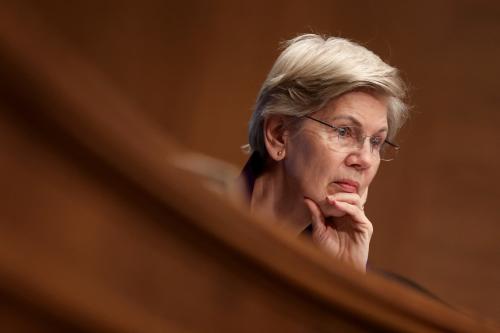
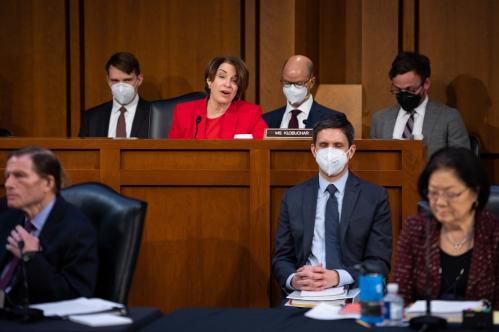

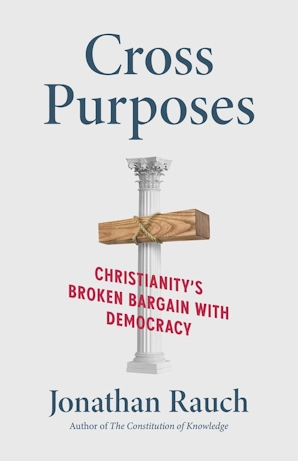
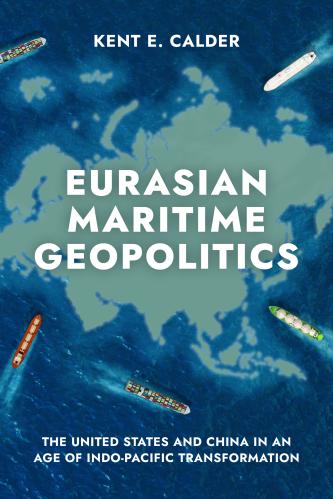

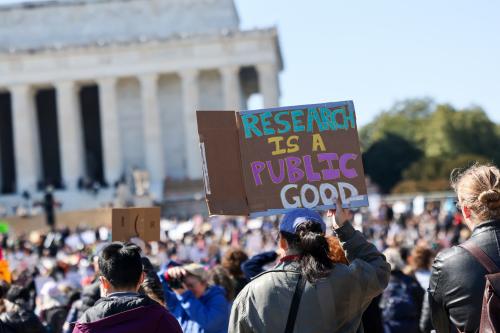
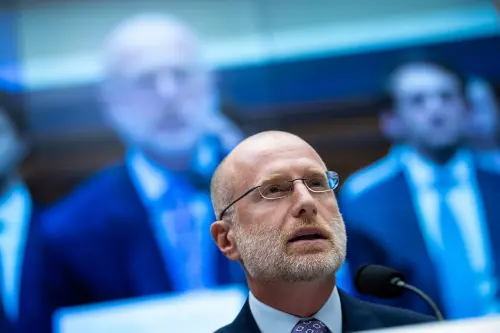
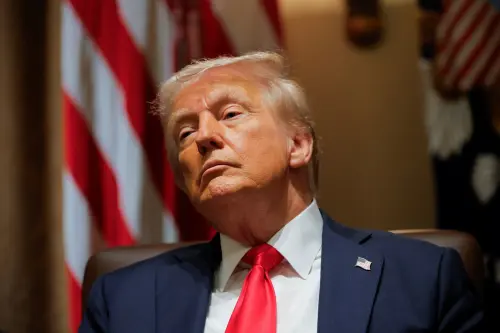
Commentary
The US falls behind international efforts to rein in technology platforms
May 28, 2019